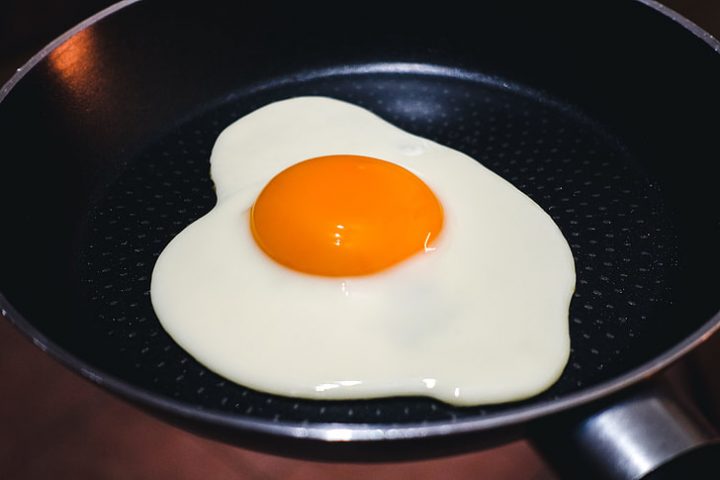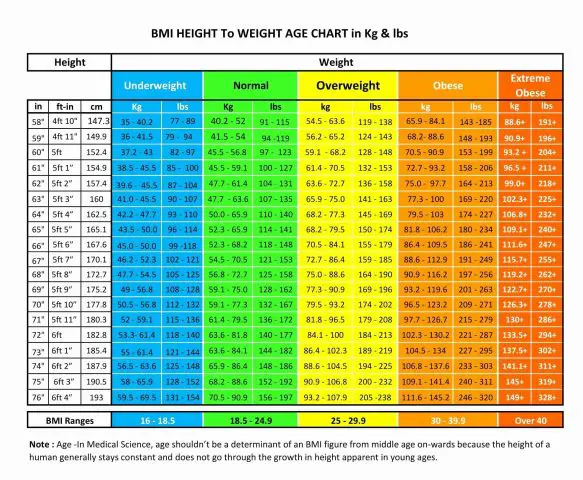We are reader-supported & may earn a small commission at no extra cost to you, when you buy through links on this site. This helps us to provide you with free and helpful content. The content of this site is informational only & is no substitute for medical advice, diagnosis or treatment. Always seek the advice of a doctor before using any of the information/products mentioned on this site.
Table of Contents
Egg Calories: Good For Losing Weight?

There is so much you can do with eggs, that it´s unlikely to not love them, but what about egg calories? Are they actually good for weight loss? Eggs are packed with important nutrients, which means that they provide a variety of minerals and vitamins relative to their calories.
Not only are eggs a remarkable source of choline and protein, but also of several important A vitamins, along with B vitamins and D vitamins.
Eggs are healthy, easy to prepare and quick to make and provide various possibilites to prepare them, such as scrambling them, boiling or fry them. And rest assured they won´t raise your bad cholesterol like once assumed and feared. Keep reading to find out if egg calories will hurt your weight loss efforts.
>> UGLY Plant [Featured On Dr. Oz] Made This Mother Lose A Jaw-Dropping 59 Pounds. Click HERE To See Her Testimony <<
Egg Calories: Nutritional Info
Below you can find the nutritional information provided by the USDA for one medium hard-boiled egg (42g)
Calories: 64
Fat: 3,5g
Carbohydrates: 62mg 0.4g
Sodium: 54mg
Fiber: 0g
Sugars: 0.3g
Protein: 4,5g
Choline: 136mg
Eggs Carbohydrates
Eggs are very low in carbohydrates, with just less than 1 g of carbohydrates, which makes them a perfect low-carb diet food. Their sugar and fiber content are so minor, they dont are relevant at all (for diabetics for example).
Eggs Fat
One medium-sized egg comes with around 3.5g fat. About 1,3grams are saturated fats, the rest consist of monounsaturated fats and polyunsaturated fats. If you choose to prepare your eggs with oils, this will add extra fat and calories to your meal.
If you are looking to lose weight with eggs, you should keep fat in check. Your best bet would be to boil them. The majority of egg calories and fat content is in the egg yolk. About 49 calories are found in the yolk of a medium-sized egg.
Eggs Protein
Eggs are probably the best natural source of protein around. It has a bioavailability of 100, which means that our bodies are able to assimilate 100% of eggs protein for our health.
The majority of eggs protein content is found in the egg white with approximately 3 to 4 grams of protein, 14 calories and barely any fat. Egg whites are also a rich source of the amino acid leucine, which has shown to help with weight loss.
Eggs Micronutrients
Eggs are a remarkable source of important minerals and vitamins. Phosphorus, vitamin A (important for cell growth, skin and hair), vitamin D (needed for our bodies to absorb calcium) and B vitamins. More so, they are a good source of choline, selenium and riboflavine.
Eggs Aid In Building And Maintaining Muscle Mass
Popular amongst athletes and bodybuilder, eggs are the perfect food, for building and maintaining muscle mass. More muscle mass means a higher metabolic rate. A higher metabolic rate let our bodies burn calories more efficient, even at rest. Do eggs help burn belly fat? Indirectly, yes, a higher metabolic rate is linked with increased fat oxidation.
Rich Source Of Healthy Fats
Although Eggs also contain saturated fats, they are also a rich source of monounsaturated and polyunsaturated fats, which are regarded as good fats. These fats have shown to be supportive in lowering LDL blood levels (commonly referred as bad cholesterol) and in contributing to heart health. Heart and health experts recommend limiting saturated fats to about 12 grams a day.
Eggs Support Eye Health
With their high carotenoid content (zeaxanthin and lutein), eggs help to protect our eyes from age related vision diminishment (macular degeneration).
Good For Your Brain
Eggs being a very rich source in choline, can help in boosting brain health and cognitive performance. More so, choline has shown to be protective against cognitive impairments, such as age-related memory loss.
Potential Allergic Reaction To Eggs
Being allergic to eggs is a common allergy, especially for children. The symptoms can range from stomach pains, mild rashes to more severe cases that may include anaphylaxis, a condition which can be life-threatening. If you think you or your children might be allergic to eggs, seek personal advice of a healthcare professional.
Allergic reactions can occur by consuming both the egg yolk and/or egg white. However, to have these kind of allergy can be complicated because many foods and dishes are prepared with egg contents. Foods which contain egg must be labeled under the Food Allergen Labeling and Consumer Protection Act.
Many vaccines – such as the seasonal flu vaccine – were made with eggs in the past. Today there are egg-free vaccines available. Talk to your doctor if you suspect an allergy to eggs, before getting vaccinated.
The Cholesterol Boogey Man
Many people are concerned about the cholesterol found in eggs, but dietary cholesterol (179 milligrams in a medium-sized egg) and blood cholesterol, which is tested to check your risk for heart related diseases, are not the same.
Current medical expertise suggests that consuming foods that are high in dietary cholesterol are unlikely to significantly impact your risk for heart related diseases. Keep your saturated and trans fat intake in check, to keep your your blood cholesterol levels in check.
Egg Variants
The qualitiy of eggs is not different between white eggs and brown eggs (regarding shell color). However, eggs from “free-range” hen which were kept in good conditions, with enough space to move and life, and which were fed with good natural food (such as grubs, greens and other natural foods), produce better more nutritious eggs. Hen that have been fed flax seeds raise the level of healthy omega-3 fat acids in their eggs.
In most cases, Americans buy hen eggs. But there are other eggs of different poultry species availabe, which have slightly different nutritional profiles.
For example:
A medium-sized goose egg comes with approximately 101 calories, 6,9g protein, 5,9g fat, 455mg cholesterol and 114mg choline.
A medium-sized quail egg comes with approximately 65 calroies, 4,9g protein, 4,8g fat, 414mg cholesterol and 122mg choline.
A medium-sized duck egg comes with approximately 102 calories, 5,5g protein, 5g fat, 410mg cholesterol and 126mg choline.
Food Hygiene and Safe Storage
Eggs should be stored in your refrigerator at 39 degress F or higher. In most cases, you can store eggs for about 3 weeks from the date you bought them. Hard-boiled eggs will be good to go consumption up to a week, when stored in your refrigerator. They can be stored frozen as well, for up to one year, if you remove their shell and seal them in vacuum bags.
Raw eggs can carry bacteria such as salmonela which can cause food poisioning, and other serious health issues in some cases, make sure you handle them appropriate. Keep them cold and cook them accordingly.
If you prepare scrambled eggs and/or omelets, make sure they are cooked to an extend where no liquid content can be seen. If you poach or fry your eggs, cook them until whites are completely set and yolks are thickened.
Preparation Ideas
Eggs are a versatile and necessary ingredient for many bakers and home cooks. A fried egg on a slice of whole-wheat toast makes a yummy meal at any time of the day. Scrambled eggs with spinach and a little bit of cheese is a healthy, filling dish, not just at breakfast time.
The next time you want to prepare a healthy egg meal, try these following recipes:
- Scrambled Egg with Feta and Cauliflower
- Fritatta with Mushroom and Pepper
- Salad with Tuna, olive oil, vinegar and sliced boiled egg

Egg Calories: Conclusion
Egg is low enough in calories to be a perfect weight loss food. Its dense nutrient and high protein content, provide a filling meal at any time of the day. Its protein content is especially important for maintaining healthy levels of muscle mass, which in turn keep your metabolism active the whole day and even when you sleep.
Consuming enough protein is a crucial part when trying to lose weight. Diet plans like The Custom Keto Diet provide a variety of high-protein foods and meals for maximum weight loss.
Have you enjoyed reading our article Egg calories? Let us know in the comments below!

Dear Reader, have you enjoyed reading this article? Since 2020, we dedicate ourselves to help people all over the world to achieve their weight loss goals. Over the course of these years many of our readers have contacted us to tells us about their weight loss progress. This is what keeps us going. If you found this article useful, please consider sharing it.
Thank you – Your WLJ-Team
Greetings,
Your WLJ-Team





